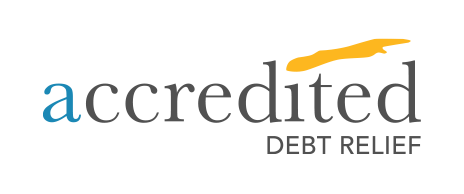Originally published: February 18, 2022
Your net worth shows you the big picture view of your finances and financial health. Add your assets and liabilities to our form to calculate your net worth and learn four ways to improve your result, including insight from financial planner Michael Ryan.
What is Your Net Worth?
Think of your net worth as everything you own minus everything you owe.
The formula is: Assets – Liabilities = Net Worth
Your regular income is not factored into your net worth until it is converted into an asset. For that reason, it is possible to have a high income but low net worth. Conversely, people with low incomes can build net worth through strategic saving and investing.
Before taking steps to grow your net worth, let’s calculate its current value. You can find your net worth by taking an inventory of your assets and liabilities.
What are Assets and Liabilities?
Assets include cash in savings and checking accounts, retirement funds and investment like stocks. These assets are considered liquid because they can be converted into cash quickly. Assets also include physical property that could be sold for cash at current market value or leverage for a line of credit. These assets are considered fixed.
It is not necessary to fully own something for it to count toward your net worth. For example, equity in a mortgage or on a car loan counts toward your net worth after what you owe on the property is subtracted from its current resale value.
Liabilities include any money that you owe to an individual or entity. Consumer debt like credit cards balances, loans, mortgages, auto loans, student loans and more fall into this category.
If you owe money on a fixed asset like a mortgage, it is possible that the property has appreciated, meaning it is worth more than you borrowed to buy it. In instances such as these, what you owe on the mortgage may be offset fully by the current resale value of the property.
Alternatively, fixed assets like cars typically depreciate in value, which means that the equity you have in the vehicle can be much less than its current market value. If you owe more on the vehicle than it is worth, the asset can hurt your overall net worth.
Why Should You Know Your Net Worth?
Your net worth serves as a snapshot of your financial health. If you have more liabilities than assets, you will have a negative net worth. When this occurs, it can be an indication that your debt is out of control.
According to financial planner Michael Ryan, calculating your net worth is a critical first step in gaining control of your finances.
I always advise clients to complete a full net worth statement calculation annually. It provides motivation by quantifying financial progress and quickly exposing any problem areas.
Michael Ryan of Michael Ryan Money
Regardless of your net worth, it makes sense to:
- Have an emergency fund
- Max out retirement contributions
These investments are critical to both your short and long-term financial health.
If your net worth is negative due to high-interest debt, it makes sense to:
- Focus on paying down debt before making significant contributions to other savings and investments.
A mortgage can be an exception to this advice as long as the mortgage payment is within your means and the property has a value equal to or greater than what you borrowed to buy it.
Focus on Steady Growth vs. Dramatic Gains
Net worth benchmarks based on age and income are helpful goalposts. But don’t get discouraged if you fall short, said Ryan.
Focus on improving each year through smart financial habits. As a financial planner, my proudest moments come when clients achieve major net worth milestones like a debt-free lifestyle or crossing the $1 million mark.
Michael Ryan of Michael Ryan Money
Average Net Worth by Age
| Age | Average net worth |
|---|---|
| Under 35 | $76,300 |
| 35–44 | $436,200 |
| 45–54 | $833,200 |
| 55–64 | $1,175,900 |
| 65–74 | $1,217,700 |
| 75+ | 977,600 |
4 Ways to Improve Your Net Worth
- Pay Down Your Debt
Paying down your debt, especially high-interest credit cards and loans is essential to building net worth. Until these debts are under control, they will negate the value of your assets.

Debt Solution
✓ Lower Monthly Payment
✓ No Credit Score Limit
✓ Debt-free in 24-48 months
✓ No fee to apply
✓ A+ Rating with BBB
- Invest in Property
Property is a fixed asset that historically gains value over time. Buying a property, especially one you plan to live in makes sense. You need to have somewhere to live, so why not put your housing budget toward an investment that will improve your net worth?
- Max Out Retirement Contributions
Retirement planning is essential for your future. Maxing out your contributions prevents you from leaving money on the table. These funds will grow over time, improving your net worth with very little effort on your part.
- Grow your money in the stock market
In addition to retirement investments, you may decide to put additional money in the stock market. You can start small using investment apps or make more significant investments by working with an advisor. It’s important to choose a level of risk that makes sense for you. This step is probably best for those who have the majority of their debt under control.
If you need help with your debt, debt consolidation can help. Speaking with a Consolidation Specialist is a great place to start. Get a free quote to see if you qualify for help.

